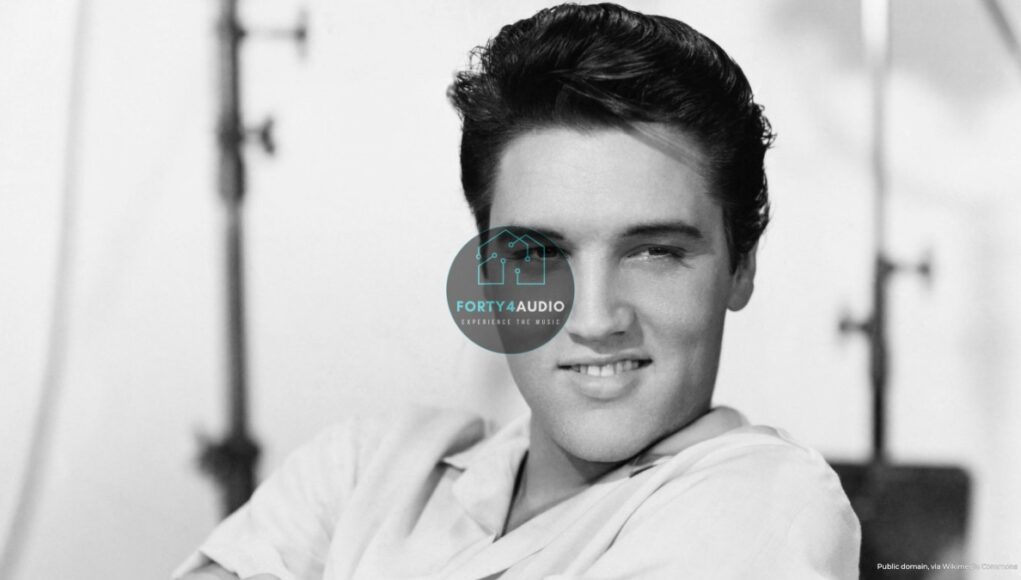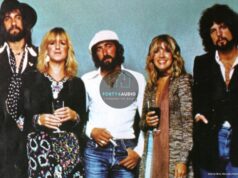The Enduring Influence of Elvis Presley’s Rock and Roll Revolution
In the summer of 1954, a 19-year-old truck driver from Tupelo, Mississippi, walked into Sun Studio in Memphis and recorded a song that would ripple across the world. That song, That’s All Right, wasn’t just a regional hit – it was a cultural spark. Elvis Presley didn’t invent rock and roll, but he became its most powerful amplifier. His sound, his swagger, and his synthesis of musical traditions reshaped the American soundscape and sent shockwaves through generations of musicians.
This is the story of how Elvis Presley’s musical legacy began in Memphis and grew into a global revolution – one that still echoes through speakers, turntables, and headphones today.
How Elvis Presley Changed Music History
The Roots of a Revolution
To understand the impact of Elvis Presley, you have to start with the musical soil he grew from. The American South in the 1940s and ’50s was a patchwork of musical traditions – Black gospel choirs, Delta bluesmen, Appalachian country pickers, and rhythm and blues bands playing in juke joints and church halls. These genres were often segregated, both socially and commercially.
Elvis absorbed them all. He grew up listening to Sister Rosetta Tharpe and Mahalia Jackson on the radio, sneaking into Black churches to hear gospel choirs, and idolizing country stars like Hank Snow. He was a cultural sponge, and when he stepped into Sun Studio, he didn’t just mimic those sounds – he fused them into something electrifying.
The Birth of Rock and Roll at Sun Studio
That’s All Right and the Sun Sessions
On July 5, 1954, Elvis, guitarist Scotty Moore, and bassist Bill Black were fooling around in the studio when they stumbled into a rollicking version of Arthur Crudup‘s blues tune That’s All Right. Sam Phillips, the visionary behind Sun Records, knew instantly they had something special. The song hit Memphis airwaves two days later, and the phone lines lit up.
The B-side, Blue Moon of Kentucky, was a bluegrass tune by Bill Monroe, reimagined with a rockabilly twist. This pairing – Black blues on one side, white country on the other – was a musical statement. Elvis was bridging racial and cultural divides, whether he intended to or not.
Elvis Presley’s Genre-Blending Sound
Blues, Gospel, and Country in Harmony
Elvis’s early recordings were a masterclass in genre fusion. His voice could ache with gospel soul, snarl with blues grit, and twang with country charm. Songs like Mystery Train, Good Rockin’ Tonight, and Baby Let’s Play House showcased his ability to move between styles with ease.
His gospel roots remained central throughout his career. Albums like His Hand in Mine (1960) and How Great Thou Art (1967) weren’t commercial gimmicks – they were deeply personal expressions of faith. He won three Grammy Awards, all for gospel recordings.
Elvis Presley’s Most Influential Albums and Songs
Studio Albums That Shaped Rock and Roll
- Elvis Presley (1956)
His debut album was the first rock and roll LP to top the Billboard chart. With tracks like Blue Suede Shoes and I Got a Woman, it captured the raw energy of his early sound. - Elvis Is Back! (1960)
Recorded after his return from military service, this album showed a more polished, versatile Elvis. Songs like Fever and Reconsider Baby revealed his growing vocal sophistication. - From Elvis in Memphis (1969)
A return to form, recorded at American Sound Studio. This album featured In the Ghetto and Suspicious Minds, blending soul, country, and pop with social commentary.
Singles That Defined a Generation
- Heartbreak Hotel (1956) – His first national hit, drenched in echo and loneliness.
- Hound Dog / Don’t Be Cruel (1956) – A double-sided smash that cemented his superstardom.
- Jailhouse Rock (1957) – A rock anthem paired with one of the most iconic music videos ever filmed.
- Can’t Help Falling in Love (1961) – A ballad that became a wedding staple and a concert closer.
Rare and Underrated Elvis Presley Tracks
For fans who’ve worn out the hits, there’s a treasure trove of lesser-known recordings that reveal new dimensions of Elvis’s artistry:
- Tomorrow Is a Long Time – A Bob Dylan cover that Elvis recorded in 1966. Dylan himself said it was his favorite version of the song.
- Stranger in My Own Hometown – A gritty, autobiographical blues track recorded during the Memphis sessions.
- I Washed My Hands in Muddy Water – A swampy, country-blues number that showcases his vocal power and rhythmic instincts.
Elvis Presley’s Cultural Impact on Music and Society
Breaking Barriers on Stage and Screen
Elvis’s stage presence was magnetic – and controversial. His televised performances on shows like The Ed Sullivan Show were considered scandalous by some, thanks to his hip-shaking and suggestive moves. But for millions of teenagers, he was a symbol of freedom and rebellion.
He also challenged racial boundaries. While he was often criticized for profiting from Black music, many Black artists – including Little Richard, B.B. King, and James Brown – acknowledged his role in bringing their sound to wider audiences.
Elvis in Film and Fashion
Between 1956 and 1969, Elvis starred in 31 films. While many were formulaic, they helped cement his image as a cultural icon. Jailhouse Rock and King Creole remain fan favorites for their musical grit and cinematic flair.
His fashion sense – leather suits, rhinestone jumpsuits, high collars – pushed boundaries and inspired generations of performers, from Prince to Harry Styles.
The Global Legacy of Elvis Presley
Influence on Future Artists
Elvis Presley’s musical legacy is woven into the DNA of rock, pop, punk, and hip-hop. The Beatles famously said they picked up guitars because of him. Mick Jagger credited Elvis with showing him how to perform. Even artists like Eminem and Beyoncé have referenced his influence.
His ability to blend genres, challenge norms, and connect emotionally with audiences set a template that artists still follow.
Graceland and the Elvis Presley Estate
Graceland, his Memphis home, remains one of the most visited private homes in America. It’s more than a tourist attraction – it’s a shrine to a man who changed music forever. The Elvis Presley estate continues to release remastered albums, unreleased recordings, and documentaries that keep his story alive.
Surprising Facts About Elvis Presley
- He never performed outside North America. Despite global fame, his manager, Colonel Tom Parker, blocked international tours due to his own immigration status.
- He recorded over 200 songs but never wrote one. Elvis was an interpreter, not a songwriter – but his delivery made each track his own.
- He had a twin brother. Jesse Garon Presley was stillborn, a fact that haunted Elvis throughout his life.
- He was a voracious reader. His personal library included books on religion, philosophy, and mysticism.
Why Elvis Still Matters
Elvis Presley’s story is more than a tale of fame and fortune. It’s about transformation – of music, of culture, of identity. He took the sounds of the South and turned them into a global language. He challenged what a performer could look like, sound like, and stand for.
In a world where genres continue to blur and artists seek authenticity, Elvis remains a touchstone. His recordings still pulse with life. His influence still shapes the stage. And his voice – urgent, tender, defiant – still speaks to anyone who’s ever felt the need to break free.
Keep the Needle Moving with forty4 Audio
If you’re the kind of listener who hears history in every groove and feels the weight of legacy in every lyric, you’re in the right place. At forty4 Audio, we celebrate the artists who shaped the soundtrack of our lives – and the gear that brings their music to life.
Join our community of collectors, crate-diggers, and sonic storytellers. Whether you’re spinning vintage vinyl or streaming in hi-res, there’s always more to explore. Let’s keep the music playing, together.













